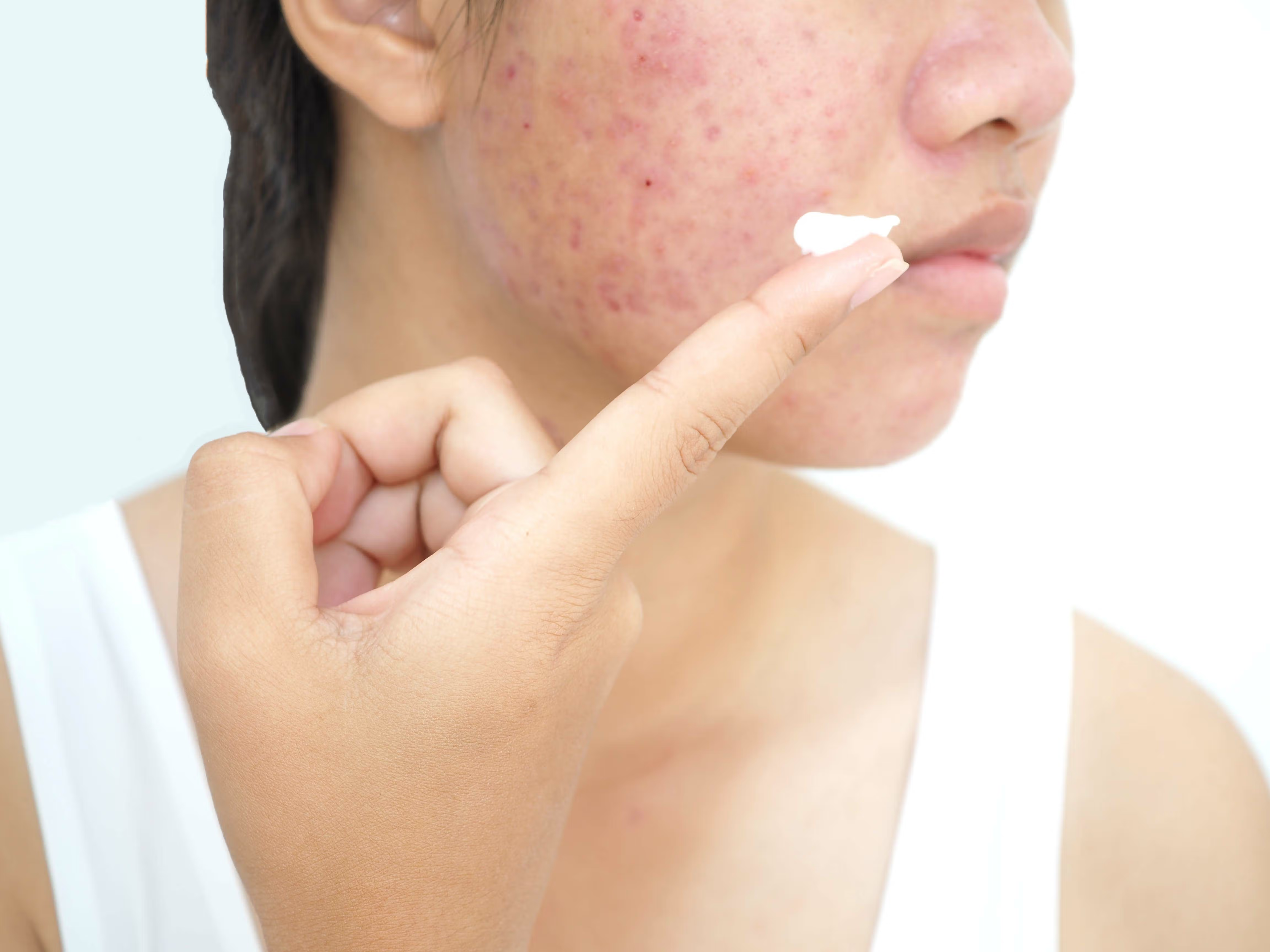- Case-Based Roundtable
- General Dermatology
- Eczema
- Chronic Hand Eczema
- Alopecia
- Aesthetics
- Vitiligo
- COVID-19
- Actinic Keratosis
- Precision Medicine and Biologics
- Rare Disease
- Wound Care
- Rosacea
- Psoriasis
- Psoriatic Arthritis
- Atopic Dermatitis
- Melasma
- NP and PA
- Skin Cancer
- Hidradenitis Suppurativa
- Drug Watch
- Pigmentary Disorders
- Acne
- Pediatric Dermatology
- Practice Management
- Prurigo Nodularis
- Buy-and-Bill
Article
Topical corticosteroids reduce retinoid irritation, study shows
Author(s):
Transient topical corticosteroids could take edge off severe irritation from topical retinoid acne treatment without decreasing efficacy.
Transient use of a topical corticosteroid to limit erythema, scaling, dryness and initial acne exacerbation from topical retinoid acne treatment is a strong patient preference but wasn’t powerful enough to meet a recent study's primary endpoints of reducing acne severity or retinoid-induced irritation.
While the small degree of acne and irritation score improvements don’t justify topical corticosteroid use in all acne patients receiving retinoids, there is a percentage of patients whose irritation is significant who might benefit, according to the research letter’s authors.
“With proper patient education and management of expectations, most patients can tolerate topical retinoids. However, in the occasional patient unable to tolerate a topical retinoid, the short-term use of [a] topical corticosteroid with topical retinoid may improve tolerability without compromising efficacy,” says senior author Michael Kolodney, M.D., Ph.D., dermatology chief, West Virginia University School of Medicine, Morgantown, W.V.

Michael Kolodney, M.D., Ph.D.
Dr. Kolodney and colleagues analyzed 16 acne patients in a randomized, split-face, controlled, double-blind trial. All patients applied tretinoin to both sides of their faces for two months. For the first month, patients applied the topical corticosteroid triamcinolone cream to half of their faces and a noncomedogenic emollient as a control on the other half. For the second four weeks, patients used only the retinoid. Researchers evaluated patients at weeks one, two, four and eight.
They found a small, but insignificant, increase in efficacy on the topical corticosteroid side.
“We did see a significant reduction in dryness of the skin for the first two weeks,” he says.
Interestingly, 64 percent of participants preferred the corticosteroid side during week two and 86 percent preferred it by week four. The authors report no adverse effects from treatment, and write that, overall, they saw low rates of irritation intensity from using the moderate strength topical tretinoin.
Dr. Kolodney says that while topical corticosteroids on the face for acne is an off-label use of the medication, he believes that co-administration with retinoids has shown a remarkable ability to reduce harmful side effects of using topical steroids on the face, such as acne and skin atrophy.
He says researchers in this study did not see side effects typically linked to corticosteroid use.
“Our study was relatively small, so larger studies will be needed to fully exclude side effects, such as atrophy, perioral dermatitis or rebound rosacea,” Dr. Kolodney says. “Our study only assessed the use of topical corticosteroids with tretinoin for four weeks. We chose this design because this is when irritation from retinoids is maximal. The safety and efficacy of longer term use of topical corticosteroids will require further study.
RELATED: Optimal topical retinoid use for acne
While dermatologists usually avoid the use of mid potency steroids on the face, this study suggests that, when used with tretinoin, a mid-potency topical corticosteroid does not seem to promote acne and may reduce the irritancy of tretinoin, he says.
“With proper patient education and management of expectations, most patients can tolerate topical retinoids. However, in the occasional patient unable to tolerate a topical retinoid, the short-term use of topical corticosteroids, with a topical retinoid, may improve tolerability without compromising efficacy,” Dr. Kolodney says.
There are other options that can help to reduce topical retinoid-induced irritation. Among those: use of newer, less irritating formulations and introducing retinoids gradually.
“Starting with a lower strength of retinoid or alternate day dosing for the first four weeks can improve tolerability,” Dr. Kolodney says. “Proprietary formulations of retinoids have claimed to produce less irritation. It’s not absolutely clear to me if the reduced irritation is actually a result of the formulation decreasing delivery of [the] drug.”
Delaying treatment application to after face washing might help.
“Most controlled studies find a relatively low rate of irritation from retinoids compared to most dermatologist’s real word perceptions,” he says. “Some clinicians recommend waiting 20 minutes after face washing. However, a split face study on adapalene showed that waiting 20 minutes after face washing, before applying retinoid, made no difference.”
Finally, using short treatment regimens, applied on alternate days could also help reduce irritation risk.
“An example of a short contact regimen would be to apply a thin layer of 0.1% tazarotene gel for two to five minutes to the face before washing with a non-soap liquid cleanser,” Dr. Kolodney says.
REFERENCE
Coman GC, Holliday AC, Mazloom SE, et al. "A randomized,split-face, controlled, double-blind, single-centre clinical study: transient addition of a topical corticosteroid to a topical retinoid in patients with acne to reduce initial irritation," British Journal of Dermatology. August 2017. DOI:10.1111/bjd.15150.





